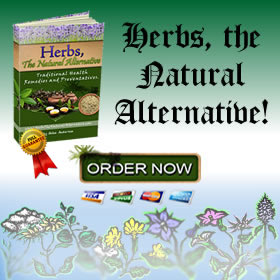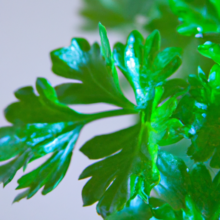Thyme Is On Your Side: Unlocking Its Potent Properties
Have you ever considered the powerful benefits that thyme can bring to your health and well-being? In this article, we will explore the myriad of potent properties that this humble herb possesses, and discover how it can be a valuable addition to your daily routine. From its antioxidant and anti-inflammatory properties to its ability to boost your immune system, thyme is truly a superstar in the world of natural remedies. So, let’s delve into the wonderful world of thyme and unlock its incredible potential together.
The History of Thyme
Ancient Uses of Thyme
Thyme has a long and storied history dating back to ancient times. Its use can be traced back to the Egyptians who used it in embalming practices and as an incense in their temples. The ancient Greeks also held thyme in high regard, believing it to be a source of courage and strength. They would gift thyme to soldiers before they went into battle, believing it would protect and strengthen them. Thyme was also used by the Romans, who would include it in their baths and burn it as incense.
Thyme in Traditional Medicine
Thyme has been used in traditional medicine for centuries due to its numerous health benefits. It was commonly used to ease respiratory issues such as coughs and bronchitis. It was also used as a digestive aid and to alleviate menstrual cramps. Thyme was believed to have antiseptic properties and was used to treat wounds and prevent infections. In traditional medicine, thyme was often consumed as a tea or applied topically as an oil or poultice.
Thyme in Culinary History
Thyme has a rich culinary history and has been used in cooking for thousands of years. Its distinct flavor and aroma make it a popular addition to a variety of dishes. In ancient times, thyme was used to enhance the flavor of meats, vegetables, and soups. It was also a staple herb in Mediterranean cuisine, where it is still widely used today. Thyme can be used fresh or dried, and its versatility makes it a favorite among chefs and home cooks alike.
Thyme Varieties
Common Thyme (Thymus vulgaris)
Common thyme, also known as Thymus vulgaris, is the most widely used variety of thyme. It has a strong, earthy flavor and pairs well with a variety of dishes. Common thyme is often used in Mediterranean recipes, and its flavor complements meats, vegetables, and soups.
Lemon Thyme (Thymus citriodorus)
Lemon thyme, or Thymus citriodorus, has a citrusy and refreshing flavor. It has a distinct lemon scent and is commonly used in fish dishes, marinades, and salads. Lemon thyme adds a bright and tangy flavor to any recipe.
Creeping Thyme (Thymus serpyllum)
Creeping thyme, also known as Thymus serpyllum, is a low-growing variety of thyme that is often used as ground cover in gardens. It has a slightly milder flavor compared to other thyme varieties and is used to add a subtle herbaceous taste to dishes.
Wild Thyme (Thymus serpyllum)
Wild thyme, also known as Thymus serpyllum, is a hardy and aromatic variety of thyme. It is commonly found in the wild and has a stronger flavor compared to other thyme varieties. Wild thyme is often used in marinades, stews, and roasted meats for its bold and robust taste.
Chemical Composition of Thyme
Thyme contains a variety of chemical compounds that contribute to its numerous health benefits and unique flavor profile. Some of the key compounds found in thyme include:
Thymol
Thymol is one of the main active compounds found in thyme. It has strong antimicrobial properties, making it effective against bacteria and fungi. Thymol is also known for its antioxidant properties, helping to protect the body against damage caused by free radicals.
Carvacrol
Carvacrol is another important compound found in thyme. It is known for its antimicrobial and anti-inflammatory effects. Carvacrol has been shown to inhibit the growth of bacteria and reduce inflammation in the body.
Linalool
Linalool is a compound found in thyme that contributes to its unique aroma. It has been studied for its potential calming and stress-relieving effects. Linalool may help promote relaxation and improve mood.
Caryophyllene
Caryophyllene is a compound found in thyme that has anti-inflammatory properties. It has been studied for its potential to reduce inflammation in the body and may have protective effects against certain chronic diseases.
Other Compounds
Thyme also contains other compounds such as rosmarinic acid, flavonoids, and tannins, which contribute to its overall health benefits. These compounds have antioxidant activity and may help protect the body against oxidative stress.
Health Benefits of Thyme
Thyme offers a wide range of health benefits due to its potent properties and chemical composition. Some of the notable health benefits of thyme include:
Antimicrobial Properties
Thyme has strong antimicrobial properties, making it effective against various bacteria and fungi. It can help prevent the growth of harmful microorganisms and may be beneficial in fighting infections.
Anti-Inflammatory Effects
The compounds found in thyme, such as carvacrol and caryophyllene, have anti-inflammatory effects. Thyme may help reduce inflammation in the body, which is linked to various chronic diseases.
Antioxidant Activity
Thyme contains antioxidants that help protect the body against damage caused by free radicals. These antioxidants may reduce oxidative stress and prevent cellular damage.
Digestive Aid
Thyme has been used for centuries as a digestive aid. It may help relieve stomach discomfort, bloating, and indigestion. Thyme can also stimulate the production of digestive enzymes, aiding in the digestion process.
Respiratory Health
Thyme has traditionally been used to support respiratory health. It can help alleviate symptoms of coughs, colds, and bronchitis. Thyme may also help break up phlegm and mucus, making it easier to expel.
Relieving Stress and Anxiety
The aroma of thyme, particularly the compound linalool, may have calming and stress-relieving effects. Inhaling thyme essential oil or using it in aromatherapy may help promote relaxation and reduce anxiety.
Promoting Skin Health
Thyme has been used topically to promote skin health. Its antimicrobial and antioxidant properties may help combat acne, reduce inflammation, and protect the skin against damage.
Boosting Immune System
Thyme contains compounds that can help boost the immune system. It may support immune function and help the body fight off infections and illnesses.
Potential Medical Applications
Thyme in Antimicrobial Therapy
The antimicrobial properties of thyme make it a promising candidate for antimicrobial therapy. Thyme extracts and essential oil have been studied for their effectiveness against various bacteria and fungi. Thyme may offer a natural and alternative approach to combatting drug-resistant microorganisms.
Thyme in Diabetes Management
Thyme has shown potential in managing diabetes. Studies have indicated that thyme may help regulate blood sugar levels and improve insulin sensitivity. Thyme may be beneficial for individuals with diabetes or at risk of developing the condition.
Thyme for Digestive Disorders
Thyme has been used to alleviate digestive disorders such as indigestion, bloating, and stomach discomfort. Its digestive properties may help improve digestion and relieve symptoms associated with gastrointestinal issues.
Thyme in Respiratory Treatments
Thyme has long been used to support respiratory health. It may help soothe coughs, reduce inflammation in the airways, and break up mucus. Thyme extracts and essential oil may be beneficial in respiratory treatments and supportive care.
Thyme as an Antibacterial Agent
The antimicrobial properties of thyme make it a potential natural antibacterial agent. Thyme extracts and essential oil have been studied for their ability to inhibit the growth of bacteria, including antibiotic-resistant strains. Thyme may offer a safe and effective alternative to conventional antibacterial agents.
Using Thyme in Cooking
Flavoring Soups and Stews
Thyme is a versatile herb that adds depth and flavor to soups and stews. Its earthy and slightly sweet taste enhances the overall profile of the dish. Add a few sprigs of thyme to simmering soups or stews to infuse it with aromatic goodness.
Infusing Oils and Vinegars
Thyme-infused oils and vinegars can be used to bring a burst of flavor to various dishes. Simply place fresh thyme sprigs in a bottle with oil or vinegar and allow them to infuse for several weeks. The resulting infused oil or vinegar can be used in dressings, marinades, or drizzled over roasted vegetables.
Herb-Roasted Meats and Vegetables
Thyme pairs exceptionally well with roasted meats and vegetables. The herb’s robust flavor and aroma enhance the natural flavors of the ingredients. Sprinkle fresh or dried thyme over meat or vegetables before roasting to add a fragrant and savory dimension.
Thyme in Mediterranean Cuisine
Thyme is a staple herb in Mediterranean cuisine. It is used in dishes such as roasted meats, grilled vegetables, and tomato-based sauces. Thyme’s earthy and slightly floral flavor complements the flavors commonly found in Mediterranean cooking.
Thyme in Baking
Thyme can be used in baking to add a unique twist to sweet treats. It pairs particularly well with citrus flavors and can be used in scones, cakes, and cookies. The herb’s aroma and flavor can lend a delightful surprise to traditional baked goods.
Growing and Harvesting Thyme
Choosing the Right Soil and Location
Thyme thrives in well-draining soil and prefers full sun exposure. It is important to choose a location in your garden that receives at least 6-8 hours of direct sunlight per day. Thyme can tolerate a range of soil conditions but prefers slightly alkaline soil with a pH of around 7.0.
Planting Thyme from Seeds or Transplants
Thyme can be planted from seeds or transplants. If starting from seeds, sow them indoors 6-8 weeks before the last frost date. Transplants can be planted directly in the garden after the danger of frost has passed. Thyme seeds or transplants should be spaced about 12 inches apart to allow for proper airflow and growth.
Thyme Care and Maintenance
Thyme is a low-maintenance herb that requires minimal care. It is drought-tolerant and does not require a lot of watering. However, it is important to keep the soil moist but not saturated during the establishment period. Thyme should be fertilized with a balanced organic fertilizer once or twice a year.
Harvesting Thyme
Thyme can be harvested throughout the growing season. The leaves can be harvested by snipping them off with clean scissors or pruning shears. It is best to harvest thyme in the morning when the aromatic oils are most concentrated. Regular harvesting will encourage bushier growth and ensure a continuous supply of fresh thyme.
Preserving Thyme
Thyme can be preserved for future use by drying or freezing. To dry thyme, hang the stems upside down in a cool, dry place for several weeks until the leaves are crispy. The dried leaves can be stored in airtight containers and used throughout the year. Thyme can also be frozen by placing the washed and dried leaves in freezer bags or ice cube trays with water or olive oil.
Thyme as an Essential Oil
Extraction Methods
Thyme essential oil is extracted from the leaves and flowering tops of the thyme plant using a steam distillation process. The plant material is placed in a still, and steam is passed through it, carrying the essential oil molecules with it. The steam is then cooled and condensed, resulting in the separation of the essential oil from the hydrosol.
Benefits and Uses
Thyme essential oil has a wide range of benefits and uses. It can be used topically, aromatically, or internally, depending on the desired effect. Thyme essential oil is often used to support respiratory health, boost immunity, alleviate muscle aches and pains, and promote mental clarity and focus. It can also be used in skincare products for its antimicrobial and antioxidant properties.
Precautions and Side Effects
Thyme essential oil is highly potent and should be used with caution. It is recommended to dilute it with a carrier oil before applying it topically to avoid skin irritation or sensitization. Thyme essential oil should not be ingested without the guidance of a qualified healthcare professional. Pregnant or nursing women should avoid using thyme essential oil.
Thyme in Natural Remedies
Thyme Infusions and Teas
Thyme infusions and teas have long been used in natural remedies for various ailments. To make a thyme infusion, steep fresh or dried thyme leaves in hot water for 10-15 minutes. Thyme tea can be consumed to soothe a sore throat, alleviate coughs, aid digestion, and promote relaxation.
Thyme Inhalations and Steam Baths
Inhalation of thyme steam can help relieve respiratory congestion and alleviate symptoms of colds, coughs, and sinus infections. To create a thyme steam bath, add a few drops of thyme essential oil to a bowl of hot water. Create a tent with a towel and inhale the steam for several minutes.
Thyme Infused Oils and Salves
Thyme-infused oils and salves can be used topically to address various skin issues. The antimicrobial properties of thyme make it beneficial for treating acne, wounds, and fungal infections. To make a thyme-infused oil or salve, steep fresh thyme leaves in carrier oil for several weeks. The resulting infused oil can be used as a massage oil or added to homemade salves or balms.
Thyme-Based Natural Remedies
Thyme is a common ingredient in many natural remedies and herbal preparations. It is often combined with other herbs and ingredients to create remedies for respiratory issues, digestive complaints, and skin problems. Thyme tinctures, herbal syrups, and herbal compresses can be prepared using thyme and other complementary herbs for targeted natural treatments.
Thyme in Aromatherapy
Soothing and Calming Properties
Thyme essential oil has soothing and calming properties that make it beneficial in aromatherapy. Inhalation or diffusion of thyme essential oil can help relax the mind, reduce stress, and promote overall well-being. Its aromatic properties can create a serene and soothing atmosphere.
Thyme Essential Oil for Mental Clarity
Thyme essential oil is known for its ability to promote mental clarity and focus. Inhaling or diffusing thyme essential oil may help clear mental fog, stimulate cognitive function, and improve concentration. It can be particularly beneficial during periods of mental fatigue or when studying or working on complex tasks.
Thyme Aroma in Meditation and Relaxation
The fresh and herbaceous aroma of thyme can enhance the experience of meditation and relaxation. It can help create a grounding and calming environment, allowing for deeper relaxation and a sense of serenity. Incorporating thyme essential oil in meditation practices or diffusing it during relaxation techniques can promote a more tranquil state of mind.
In conclusion, thyme has a rich history and offers a wide range of benefits and uses. From its ancient uses to its prominence in traditional medicine and culinary history, thyme has stood the test of time. Whether it’s used in cooking, natural remedies, or aromatherapy, thyme continues to be a versatile herb with potent properties. With its antimicrobial, anti-inflammatory, and antioxidant effects, thyme has the potential to support overall health and well-being. So why not embrace thyme and unlock its potent properties to enhance your life?



